Home>Latin American Politics in 2023. Democracy, Authoritarianism and Hope for Change?
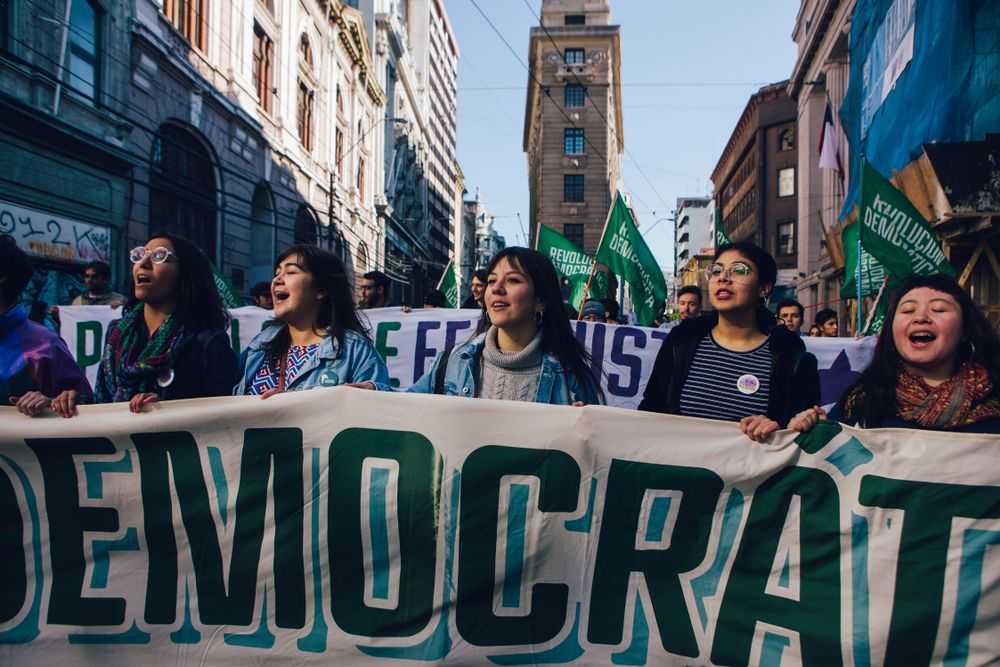
25.03.2024
Latin American Politics in 2023. Democracy, Authoritarianism and Hope for Change?
Interview with David Recondo
David Recondo, who takes over as editor of the annual publication "LAPO", looks back on an eventful political year in Latin America. From the victory of Javier Milei in Argentina, to the exodus of many of the region's inhabitants to the north, to the continuing insecurity in some states, should we be surprised by a possible return to forms of authoritarianism? Are the forthcoming elections in Mexico a source of hope? David Recondo answers our questions.
Over the past year, Latin America has seen numerous demonstrations against the governments in power. What do these protests have in common, and what do they tell us about the political situation in the different countries where they've occurred?
There are differences, but there are also a number of similarities between these countries, such as the socio-economic inequalities in their societies. In general, I prefer to talk about inequality rather than poverty. We're talking about sectors of the economy that have done quite well in the past but are now in a difficult situation with bleak prospects. Some regions have also been marginalised for years. The south of Peru, for example, has been the scene of many protests.
There have also been demonstrations against government corruption. There is a lot of dissatisfaction with the governing elites and the ruling classes, which are seen as corrupt and inefficient.
More specific actions took place around the issue of elections, respect for the results of the ballot box and fundamental rights. This was particularly the case in Guatemala, where there were major protests when the election of Bernardo Arévalo as president was challenged by the public prosecutor and the attorney general. Indigenous organisations and residents of the country's cities rallied against the decision.
Finally, the populations of Latin American countries are also protesting against insecurity. The increase in insecurity (crime, the presence of organised gangs and mafias, drug trafficking, etc.) is present in all Latin American countries, to varying degrees, but it is still very high everywhere.
El Salvador, Paraguay, Honduras and, more recently, Ecuador have implemented security policies, sometimes at the expense of democracy and human rights. This may seem frightening, but there are signs of hope.
Is it a return to authoritarianism?
The demand for authority, even authoritarianism, that opinion polls show is worrying. Democracy seems to be losing ground, especially on security issues. At the same time, however, voter turnout remains very high throughout Latin America and is even increasing in some countries. And, as I said, people turn against their governments when they feel they are not respecting their rights or are ineffective.
Nayib Bukele, the president of El Salvador, has become a benchmark for certain heads of state and for public opinion. He is the man who has managed to significantly reduce the influence of organised gangs. Even if this is at the expense of fundamental rights, many people approve of his authoritarianism.
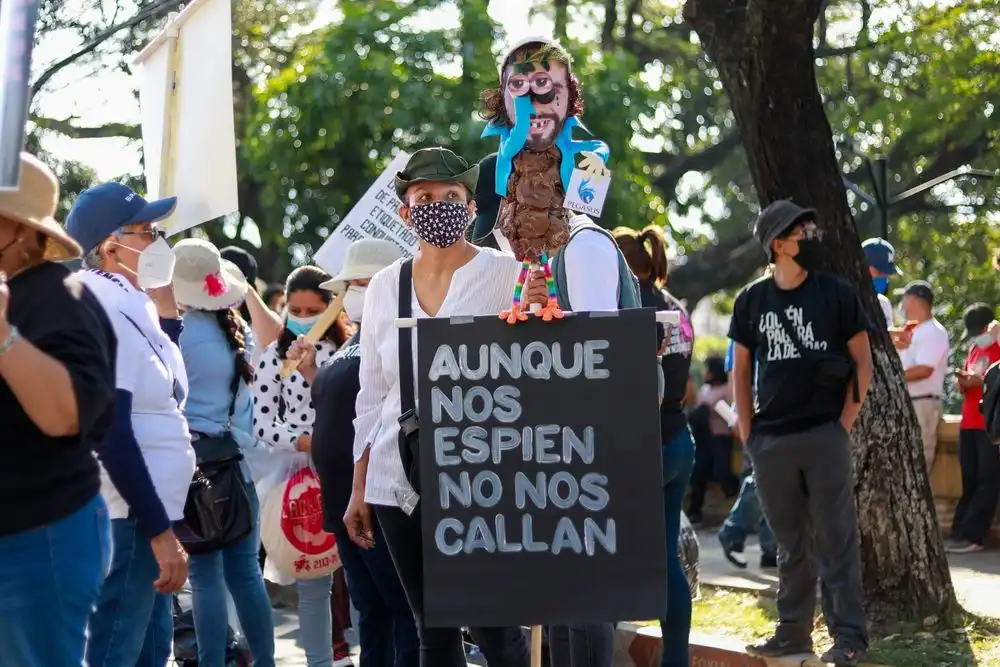
We are in a permanent state of tension: what is the point of democracy if it is unable to guarantee the bareminimum, i.e. the security of the population against gangs, but also food security, job security and social security? Latin America may be at a crossroads. The sub-continent has enjoyed a long period of stability, with the constitutional order remaining intact, which is exceptional. Most Latin American countries became democracies in the late 1970s and early 1980s. For others, such as Mexico, it was more gradual, but it all happened in the 1990s. Today we can fear a return to authoritarian rule. But I think that the democracies in Latin America are facing the same questions as elsewhere, including in Europe.
The outgoing governments were defeated in most of the 2023 elections (Argentina, Colombia, Guatemala, etc.). These elections were also won by political newcomers (Javier Milei in Argentina, Bernardo Arévalo in Guatemala, Daniel Noboa in Ecuador). What can we expect?
The outsiders were already there in the early 1990s, when neoliberal policies were implemented by populist presidents in Brazil, Argentina and Peru. Faced with hyperinflation, they had to make structural adjustments in line with the recommendations of Washington, the IMF and the World Bank. The current economic situation is not so different.
In the 1990s there were politicians - Fujimori in Peru, for example - who were not part of the political class and who got their way on the basis of the following argument: we are different and we are going to implement solutions that the others didn't dare to try or didn't know how to find.
The novelty of the outsiders must be put into perspective. They argue that they are not part of the political class that has ruled for years and are therefore not responsible for what has happened, which gives them additional legitimacy. This position has become traditional in Latin American democratic politics. Outsiders can come from a variety of backgrounds. Javier Milei in Argentina, for example, defines himself as an 'anarcho-capitalist' and has a rather new style, with a theatrical way of presenting himself to the public, making speeches and behaving. He does, however, echo some of the proposals made by Carlos Menem in the 1990s, such as reducing public spending to a minimum and dismantling the welfare state. He preaches free trade.
In Ecuador, Daniel Noboa is a household name. He is the son of a businessman who has run for president three times in a row. He is also a multi-millionaire businessman. "I'm not a politician, I'm a businessman, so I know what works and how to grow the country's economy," he told voters.
In Guatemala, Bernardo Arévalo is the son of a former president who led the country from 1945 to 1951. His father, Juan José Arévalo, introduced reforms that benefited the most disadvantaged: the beginnings of agrarian reform and a series of social policies that were immediately halted by the most conservative oligarchy and by the United States, which intervened in Guatemala in the early 1950s to put an end to this attempt at democratisation.
The 2023 outsiders are not all on the right. Milei is ultra-liberal in a number of his positions, including on Argentina's dictatorial past. In terms of values, he is very right-wing. In Ecuador, the president is mainly a libertarian, while in Guatemala he is more of a social democrat. What these three countries have in common, however, is that their leaders are in a minority in their parliaments.
How do you govern without a parliamentary majority and, as you say, with conservative administrations, which is the case not only in Brazil but also in Colombia?
That is really the question for 2024 and the years to come. These governments have very weak majorities and have to deal with the opposition to get their reform plans through. Again, we can look at this in two ways. One is that such a situation demonstrates the vitality of democratic deliberation. Indeed, government policy is set by parliaments, which is good news when we complain about presidentialism, the concentration of power in the hands of one man and the personalisation of power. At the same time, however, we are faced with a tug-of-war, difficulties in finding majorities and agreements, and the risk of permanent deadlock.
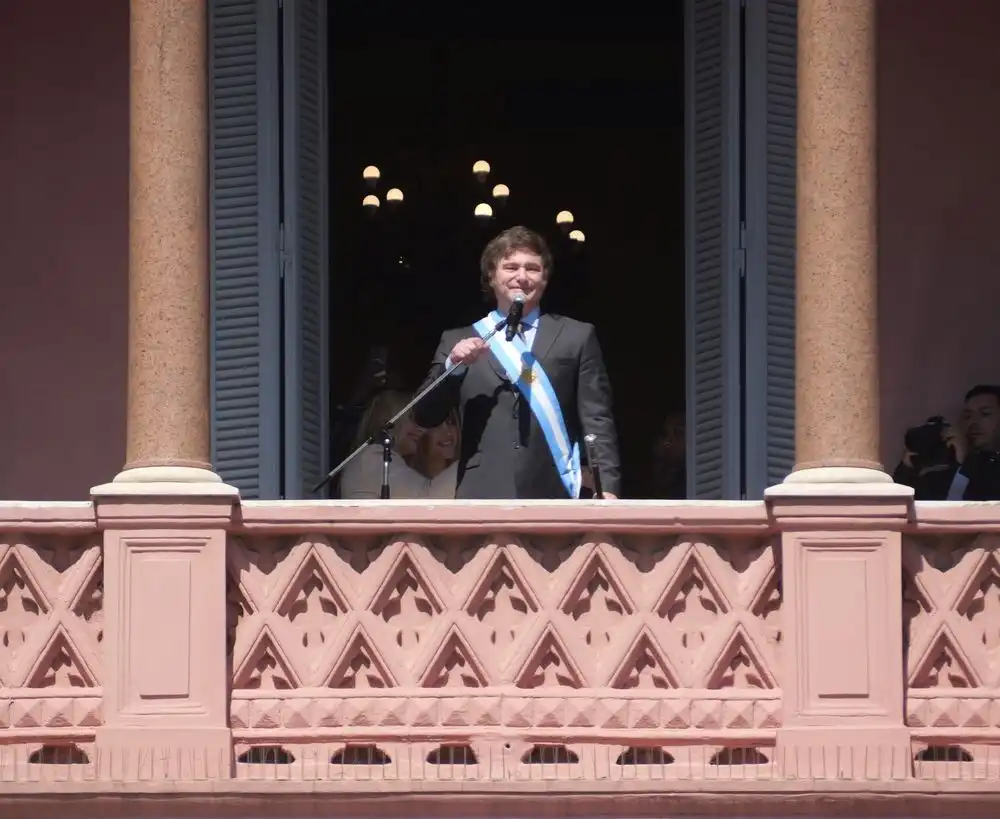
However, it is possible that, especially if the mobilisations continue, the political class will consider that it is in their interest not to appear to be permanently sabotaging and will try to find balances and agreements on a certain number of fundamental issues for society, but also on issues of public finance.
Lula himself is faced with this lack of majority, which makes things very difficult and forces constant, tiring and laborious negotiations at a time when the people expect quick results. Democracy, a system that takes time to make decisions, often proves to be imperfect and unsatisfactory.
What is your assessment of the two years since Lula returned to power in Brazil? On a national level and as a representative, even a leader, of the global South?
Lula is indeed a world figure, a world leader. The Brazilian president has managed to sign agreements with the indigenous peoples of Amazonia, and he has some very interesting positions on the environment, as well as on the Israel-Hamas conflict. Along with others in Latin America, he was one of those calling for an immediate ceasefire. While domestic policy is a difficult area in which he has very little room for manoeuvre for the reasons I mentioned earlier (lack of a majority in parliament), the international scene is an area in which Lula can assert himself more, as foreign policy is effectively his reserved domain. This is where he will try to put his personal stamp on policy.
At the moment, a lot is being done in terms of declarations, rhetoric and symbolism, but there are a number of issues where Lula could effectively defend avant-garde positions, while the leaders of the other Latin American countries may be more timid because they are caught up in their domestic affairs.
Latin America is a very divided region. The Latin American Union, the convergence of states around major integration projects, has been on hold for some time. There are major ideological differences between the various presidents and heads of government, and relations with the United States and North America vary greatly from country to country.
Brazil is the big country that can make a difference on the international stage and defend important values. For example, environmental values and the Amazon issue are elements on which Lula is taking a stand that he did not take during his previous terms in office. So yes, Lula is a leader in Latin America and, more broadly, one of the most important leaders of the Global South. But on a number of issues he is not out of step with what is happening elsewhere in the world. The Brazilian president is defending Brazil's interests, and therefore the interests of corporations that have nothing against neoliberal globalisation.
It seems that millions of citizens also decided to express their political opinions by moving, because in 2023 a record number of people left their country to settle in another, in Latin America or in the United States.
If we were to remember anything about 2023, it would be the caravans of people who moved across Latin America, leaving their country to join another.
Between Colombia and Panama, between South and Central America, the Darien Gap is a very difficult place to cross - it's a jungle. According to the figures, half a million people crossed this area in 2023. Another million crossed from Guatemala into Mexico. These figures are unprecedented and double those of the previous year. Many South Americans want to migrate to Mexico and the United States. For them, Mexico is the gateway to the United States and they don't want to stay there. In addition, many people from the Caribbean move from northern South America to Central America and end up on Mexico's southern border. There are also large numbers of people from sub-Saharan Africa, particularly West Africa, in Tijuana, on the border between Mexico and the United States. These people make a circuitous and dangerous journey from Africa to the Caribbean and from the Caribbean to Central America. The situation is identical to that in the Mediterranean, where millions of Africans risk their lives to reach Europe. We are facing an unprecedented humanitarian crisis.
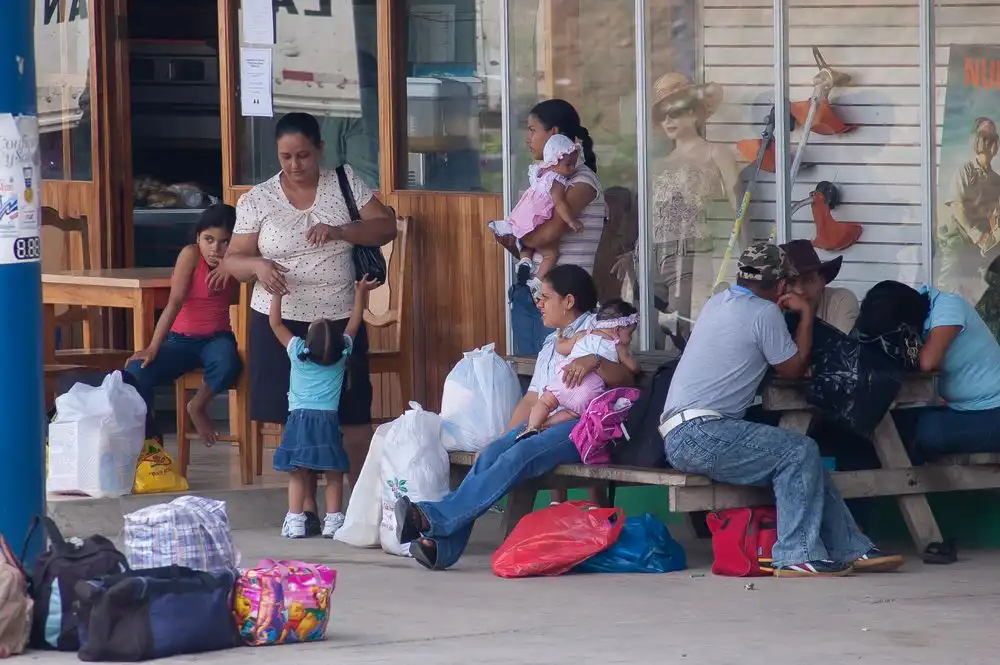
Venezuela and Ecuador have the highest number of emigrants due to their catastrophic socio-economic situation. Migration movements also reveal the difficulties faced by Venezuela's and Ecuador's neighbours. In the past, people from these countries have settled in Brazil, Colombia, Peru, Chile and Argentina.
Mexico is more or less stable, but the security situation is very difficult. The cartels have taken over, they rule in certain regions of Mexico. What's more, these cartels are increasingly involved in the trafficking of migrants. The mafias are involved in extortion and kidnapping of migrants, who are not the poorest people in South and Central America. In order to make the journey to the United States, they had to save up and carry a small amount of money to pay the smugglers, buy food, etc. As a result, they are often extorted and kidnapped. As a result, they are often extorted, abducted or kidnapped, and their families have to pay ransoms to free them.
And Mexico, soon to be led by a woman...
Yes, indeed, this is important for Mexico, which has never been the most avant-garde country when it comes to women's rights, to put it mildly. It should be remembered that about ten years ago there was a very courageous and determined policy to introduce parity in parliamentary representation, which led to significant progress. In 2014, quotas for women were made compulsory for all elections, both local and federal. As a result, many women have entered politics in municipalities, governorates and so on. We are now at the end of this institutional process.
On the other hand, at the social level, violence against women remains alarmingly high. The arrival of a woman as President of the Republic is symbolically important. It strengthens the process of women's participation in politics, which is already well underway, but we will have to wait a long time for this to permeate the rest of society and for relations between men and women to reach a more acceptable level of equality.
Claudia Sheinbaum, the candidate of President Andrés Manuel López Obrador's ruling National Regeneration Movement (Morena), is currently the frontrunner. Put there by the head of state, she will have to wean herself off the support of her "godfather", López Obrador, who holds very conservative positions on certain social issues (such as the legalisation of abortion).
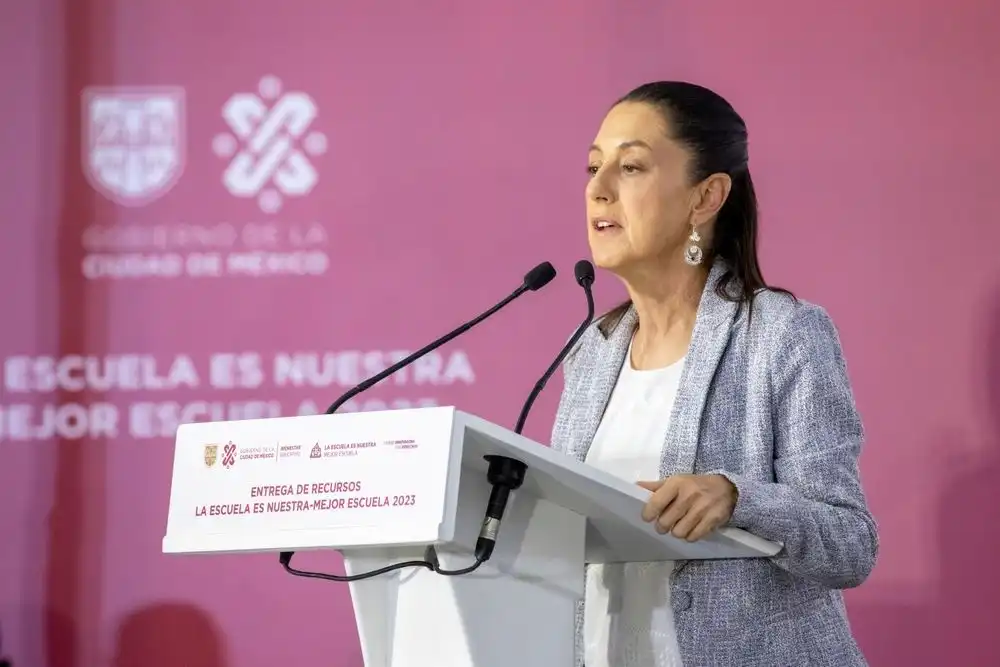
Her main opponent, Xochitl Gálvez of the right-wing National Action Party (PAN), claims to come from a very modest background. She comes from a poor indigenous family and is a self-made woman who started out selling sweets on the street before setting up her own small business and then several others before entering politics relatively late. She is backed by a very heterogeneous coalition that includes former members of three different political parties: Mexico's former hegemonic party, the Institutional Revolutionary Party (PRI), the left-wing Party of the Democratic Revolution (PRD), and her own party. Xochitl Galvez has said she will continue to support the social programmes introduced by the López Obrador government to help the most disadvantaged, pensioners and the elderly, who do not benefit from social security. Her campaign focuses on the fight against corruption, an issue close to the hearts of Mexicans.
Despite the summit between Latin America and the European Union in July 2023, Europe still seems to be a timid player in Latin America. How do you analyse this?
The process seems to have come to a standstill, a bit like Latin American integration or union. Latin Americans are looking towards Asia or North America. Large countries like Brazil, which is a member of BRICS, may have an interest in maintaining their ties with Asia or other regions, rather than with Europe, which has never had much of a presence in Latin America. Many people have always seen Latin America as the backyard of the United States. European countries are divided on what kind of attitude to take towards Latin America. Spain invests a lot and wants to maintain its special relationship with this part of the world. Until the Covid era, France also invested in Mexico and Brazil. Now we're in a kind of wait-and-see mode. The other countries are less interested in real investment and lack a strategy. Europeans see Latin America as a difficult and uncertain area, and European countries fear for their investments. Asia is less cautious.
At the moment, as far as relations between Europe and Latin America are concerned, statements on the defence of human rights and security are all well and good, but nothing concrete is being done. Having said that, beyond the summits, in a world of free trade, we need to look at the business community, which I think is really concerned about the strength of organised crime, criminality and so on. Unfortunately, the risk calculations are not in favour of the Latin American market.
Latin America's pro-Russian stance, even if it is more of a rhetorical position that hasn't been followed by action, doesn't help the development of trade either and makes it difficult to maintain relations with the countries of Central and Eastern Europe, but also with France and Germany.
Things could change and be recomposed in the coming years. Distance makes Latin American hydrocarbons of little interest to Europe. On the other hand, Latin America is rich in minerals (copper, lithium) and grain production is also very important and of interest to Europe, whose main supplier is Ukraine, which is at war with Russia.
You are taking over from Olivier Dabène, who coordinated LAPO for fifteen years. Are you planning any changes to the publication?
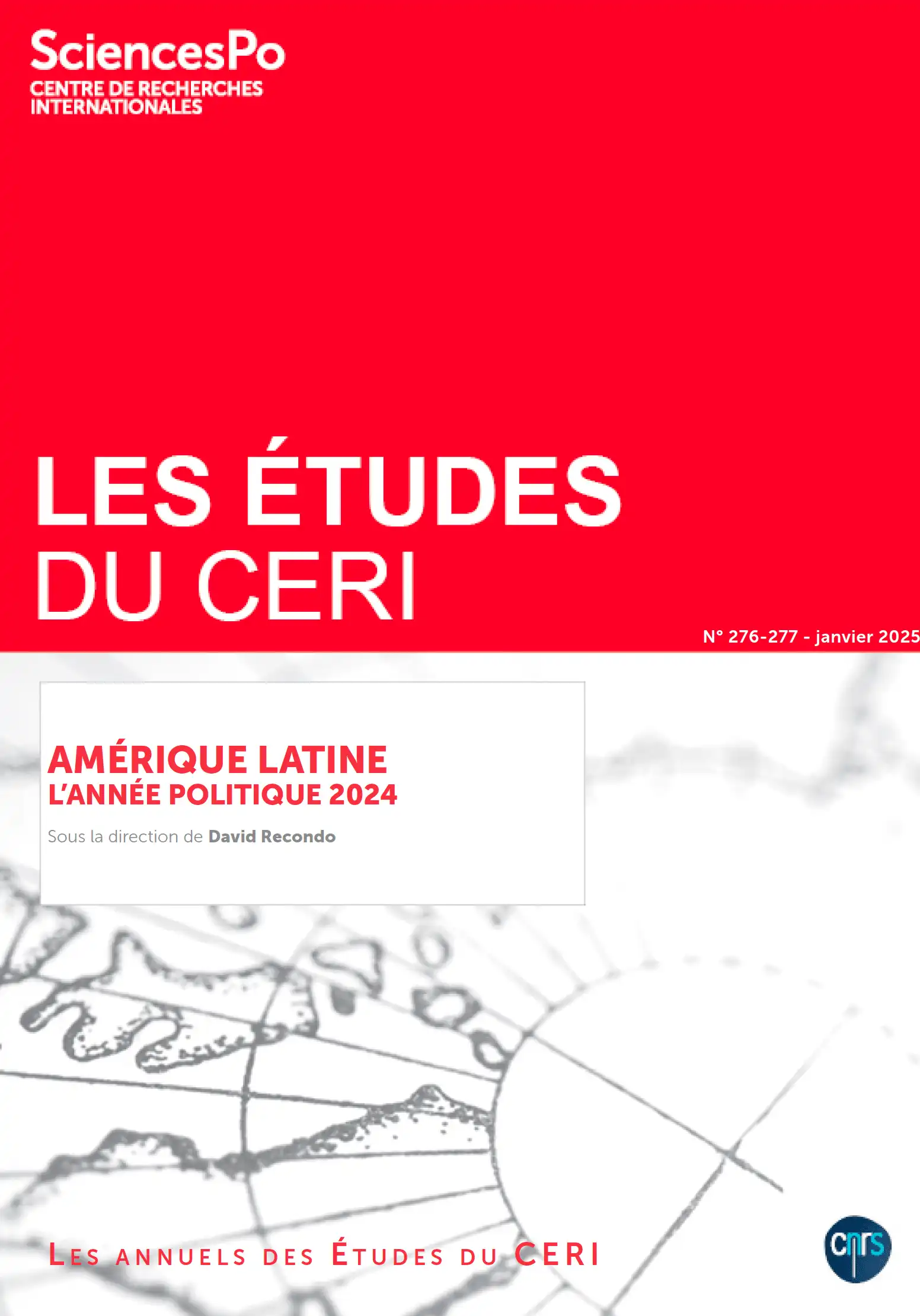
LAPO will remain a collective publication, as it has been since its creation. We're a team, so we'll all decide on any future changes together. From the beginning, Olivier Dabène has worked closely with Frédéric Louault, professor of political science at the Université Libre de Bruxelles, Kévin Parthenay, professor of political science at the Université de Tours, and Françoise Montambeault, professor of political science at the Université de Montréal. I look forward to continuing this collaboration.
I would also like to develop LAPO's research section, as this publication is also intended to showcase current research, as we already do in LAPO's fourth section entitled "Latin America in Perspective". I would like us to focus on what is not very visible in the media, on what is not or hardly in the news, on what is beyond the electoral conjuncture.
Interview by Corinne Deloy
Read the Etude L'Amérique latine. L'année politique 2023
Copyright:
Cover photo: Student protests in Valparaiso, 2018. Photo by erlucho for Shutterstock
- Photo 1: A woman holds a placard with a message against the government of Nayib Bukele in San Salvador, January 2022. Photo by Juan Carlos Caos for Shutterstock
- Photo 2: 1 December 2023, inauguration of President Milei. Photo by Facundo Florit for Shutterstock
- Photo 3: Migrants waiting for transport in the Darien province of Panama. Photo by Gonzalo Bell for Shutterstock
- Photo 4: Claudia Sheinbaum, head of the government of Mexico City, at a government event where funds were given to citizens to improve school facilities, Mexico City, 18 May 2023. Photo by israel gutierrez for Shutterstock
Follow us
Contact us
Media Contact
Coralie Meyer
Phone : +33 (0)1 58 71 70 85
coralie.meyer@sciencespo.fr
Corinne Deloy
Phone : +33 (0)1 58 71 70 68
corinne.deloy@sciencespo.fr
